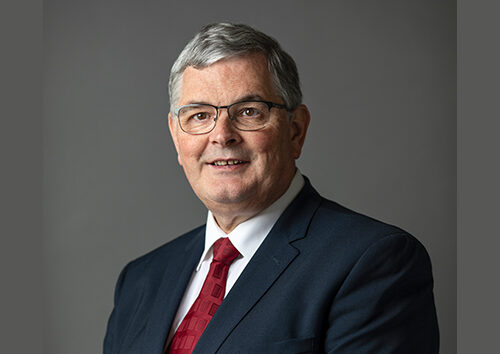28 September 2016 | St Albans, England [Victor Hulbert]
Torben Bergland launched a surprise attack on Trans-European office staff at a special presentation on Tuesday, 20 September. As Health Ministries director for the TED, and as a qualified psychiatrist and psychotherapist, he pointed out that, according to the NHS UK Livewell website, 1 in 3 people are addicted to something.

On that basis even good things, taken to excess, or for the wrong reasons, can become addictions. For instance, the minister who constantly needs positive affirmation from his congregation, the parent who cannot survive without constantly attending to their child, office staff who keep on working long beyond the European working time directive, or even the Bible student that spends so much time on studying the Scriptures that they neglect the practical aspects of Christian living and relationship.
Taken to extreme, these addictions can be just as harmful as the more recognised addictions that Adventists endeavour to steer clear of.
 “Fake fillers,” he said, “create a vicious cycle since they cannot truly fulfil, and so the person is left frustrated and empty. One practical example is the ‘workshop addict’ who feels compelled to attend multiple Adventist training events each year, who feels a high during each event, but who then slides into a valley after returning home.
“Fake fillers,” he said, “create a vicious cycle since they cannot truly fulfil, and so the person is left frustrated and empty. One practical example is the ‘workshop addict’ who feels compelled to attend multiple Adventist training events each year, who feels a high during each event, but who then slides into a valley after returning home.
Bergland was quick to point out that “addicts are not bad people.” Generally, addiction comes because they are suffering. It is a short term means of coping. Long term better solutions are needed.
 Working towards a solution Bergland shared a video on addiction showing that the way to break the cycle was to develop healthy bonds and relationships with people. Family and friends are important in this. So are work colleagues – and positive expressions were shared for those inspiring individuals in the TED office that go out of their way to stop, share a smile and take an interest in others. Even that drink break time is important, or taking a lunch-time walk with a friend.
Working towards a solution Bergland shared a video on addiction showing that the way to break the cycle was to develop healthy bonds and relationships with people. Family and friends are important in this. So are work colleagues – and positive expressions were shared for those inspiring individuals in the TED office that go out of their way to stop, share a smile and take an interest in others. Even that drink break time is important, or taking a lunch-time walk with a friend.
Bergland emphasised that the opposite of addiction is connectedness. Something demonstrated a couple of days later when directors went on a team building exercise at a go-karting track. The conversation, banter, and even the competitive spirit of some of the racers, developed a bonding that become a real asset in cross-departmental relationships and working practices.
The same is true of the church. When we recognise that the opposite of addiction is connectedness, then we look at people in a different way. Rather than modifying behaviour by ‘thou shalt not’ the behaviour will start to modify itself when people know they are cared for and supported.
 So what if you find you are one of the 1 in 3? Bergland has some suggestions, including a realisation that addiction is normal and that you have something in common with many other people. “Don’t become disgusted with yourself or your behaviour,” he emphasised. Instead, be kind towards yourself. Seek understanding of your real needs and find appropriate ways to fulfil them, recognising that ‘fake fillers’, at best, only suffice short term.
So what if you find you are one of the 1 in 3? Bergland has some suggestions, including a realisation that addiction is normal and that you have something in common with many other people. “Don’t become disgusted with yourself or your behaviour,” he emphasised. Instead, be kind towards yourself. Seek understanding of your real needs and find appropriate ways to fulfil them, recognising that ‘fake fillers’, at best, only suffice short term.
Acknowledging the emptiness or pain you are trying to manage through the addiction can be half the solution. The other half is getting connected with others, getting your needs covered by things that can truly fulfil, and by noting your victories, not your failures.
Lastly, he noted, “Help yourself by helping others.” That again, may build the healthy bonds that break the cycle and set us free. [tedNEWS]
For further information see the NHS web page.
tedNEWS Staff: Victor Hulbert, director; Esti Pujic, editor
119 St Peter’s Street, St Albans, Herts, AL1 3EY, England
E-mail: [email protected]
Website: www.ted.adventist.org
tedNEWS is an information bulletin issued by the communication department of the Seventh-day Adventist Church in the Trans-European Division.
You are free to re-print any portion of the bulletin without need for special permission. However, we kindly request that you identify tedNEWS whenever you publish these materials.




